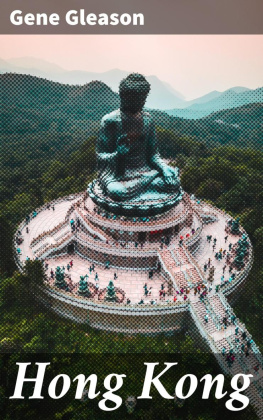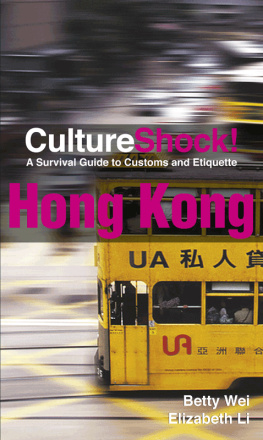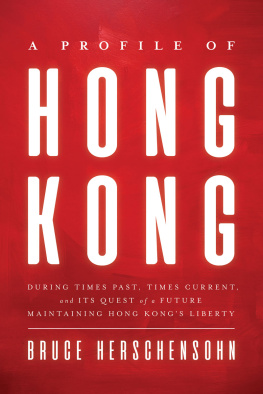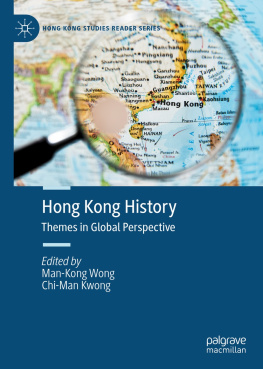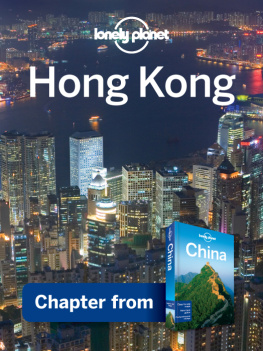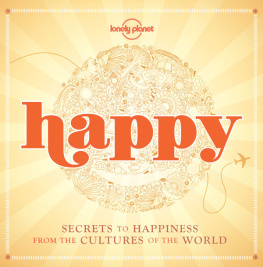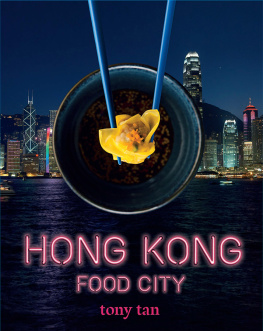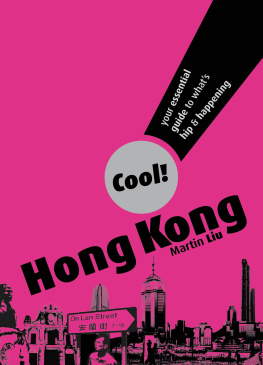Introduction
Hong Kong is a high point on the skyline of the Free World. As a free port operating on a free-world basis, it is too valuable to lose.
Sir Robert Brown Black , Governor of the British Crown Colony of Hong Kong, 1962
Except for Portugals tiny overseas province of Macao, Hong Kong is the last Western outpost on the mainland of China. It is the Berlin of East Asia, poised in perilous balance between two ideologies and two civilizations.
The government and people of Hong Kong have performed a matter-of-fact miracle by saving the lives of more than a million refugees from Red China. Without appealing for foreign aid or emergency subsidies from the home country, the colonys rulers have provided jobs, homes and freedom for the destitute. Private charitable organizations overseas and outright gifts from the governments of Great Britain and the United States have achieved miracles on their own in feeding, clothing and educating the poor of Hong Kong, but the main burden is too great to be borne by any agency except the full public power of the royal crown colony.
Most of Hong Kongs people are too poor to afford what an American would consider minimum comforts. They came to Hong Kong with nothing, yet every day they send thousands of food packages back to Red China, hoping to save their relatives from starvation.
These are only the workaday miracles of Hong Kong; the greatest miracle is that it exists at all. It has never had enough of the good thingsland, water, health, security or moneybut always a surplus of the bad oneswars, typhoons, epidemics, opium, heroin, crime and corruption.
It is one of the most contradictory and baffling places in the contemporary worlda magnificent port and a teeming slum; a bargain-hunters paradise and a nest of swindlers; a place of marginal farmland and superlative farmers, efficient and orderly, sly and corrupt. It has outlived a thousand prophecies of its imminent doom. Its people dwell between the claws of a tiger, fully aware of the spot theyre on, but not at all dismayed.
Tourists and sailors come to Hong Kong by the hundreds of thousands every year, half-expecting to discover inscrutable Orientals, or to be followed down a dark alley by a soft-shod killer with a hatchet in his hand. The Orientals turn out to be the noisiest, most gregarious people the Westerner has ever seen. No one follows him down a pitch-black alley at midnight, unless its a stray cat looking for a handout, or a shoeshine boy working late.
The real magic of Hong Kong is that none of it is exactly what you expected. You prowl around for handicraft shops and find them next to an automated textile mill. Youve been told to keep your eye open for the sprawling settlements of squatter shacks, and you find them slowly being swallowed up by multi-story concrete resettlement estates. You turn on the faucet in your hotel at noon and it issues a dry, asthmatic sigh; you try it again at six and it spits at you like an angry camel, splashing all over your suit.
You look for a historic hill in Kowloon, and there is whats left of ita stumpy mound, shaved down by a bulldozer, with the rest of it already dumped into the sea to form the foundation of a new industrial city. You look for the romantic hallmark of Hong Kong, a Chinese junk with bat-wing sails, and it putt-putts past on a Diesel engine without a scrap of canvas on the masts.
You fear for your life as you stand on the crowded sidewalk, plucking up the courage to bull your way through a fantastic tangle of autos, motor-scooters, double-deck trams, rickshaws, massed pedestrians and laborers carting bulky loads on bamboo shoulder-slings, but the white-sleeved patrolman in the traffic pagoda parts the torrent with a gesture like Moses dividing the Red Sea and you cross without a scratch.
A small, slender Chinese beauty in a closely fitted Cheongsam strolls by with a skirt slit to the mid-thighs, and you begin to perceive the reason for the thousands of Caucasian-Chinese intermarriages in the colony. Such unions go so well they hardly merit comment in todays Hong Kong gossip; a generation ago, they would have overturned a hornets nest of angry relatives in both racial groups.
Hong Kong is like the Chinese beauties in their Cheongsams; no matter how often you turn away, your next view will be completely different and equally rewarding.
CHAPTER ONE
Up from British Barbarism
The common disposition of the English barbarians is ferocious, and what they trust in are the strength of their ships and the effectiveness of their guns.
Governor Lu Ku of Canton , 1834
In 1841, the British crown colony of Hong Kong attached itself like a small barnacle to the southeast coast of the Celestial Empire. The single offshore island that constituted the whole of the original colony was a spiny ridge of half-drowned mountains forming the seaward rampart of a deep-water harbor. Before the British came, it had no geographic identity. They gave it the Chinese name Hong Kong, usually translated as fragrant harbor, which distinguished the one appealing feature of its forbidding terrain.
Sparsely inhabited from primitive times, Hong Kong, the more than two hundred rocky islands scattered outside its harbor, and the barren seacoast opposite them lay far out in the boondocks of China. Its innumerable, deeply indented coves and mountain-ringed harbors made it a favorite lurking place for coastal pirates.
For centuries, fleets of pirate junks had apportioned their rapacity between pouncing on coastwise ships and pillaging isolated farms and fishing settlements. The Manchu emperors, lacking the unified navy necessary to sink these cut-throats, attempted to bolster the thin defenses along the pirate-infested coast of Kwangtung Province by offering tax-free land to any of their subjects who would settle there. Even so, there was no wild scramble to accept the gift.
Less troublesome than pirates but hardly more welcome to the rulers of China were the European traders who had been plying the Chinese coast since the beginning of the sixteenth century. In the middle of that century, Portuguese merchant-sailors overcame part of this hostility by employing their well-armed ships to help the Chinese emperor crush a pirate fleet. They were rewarded with imperial permission to establish a small trading outpost at Macao, forty miles west of Hong Kong Island.

